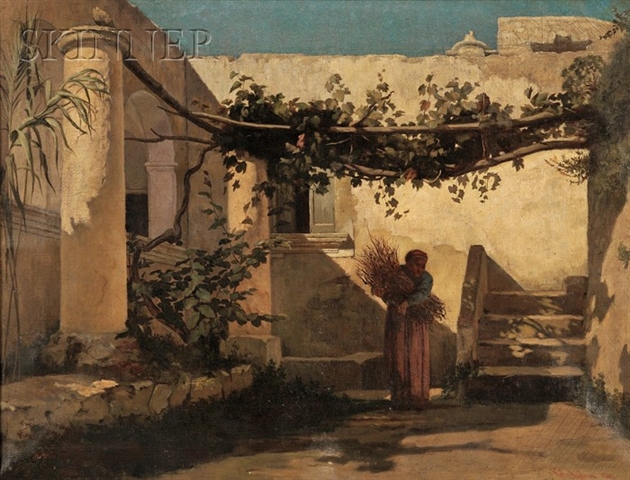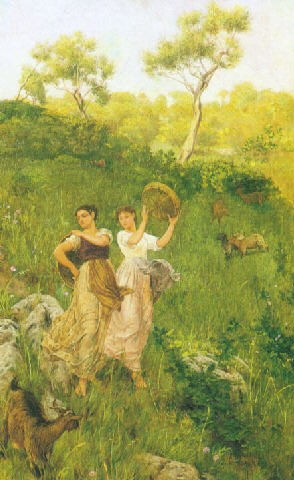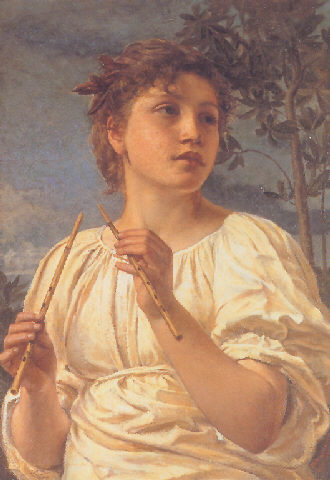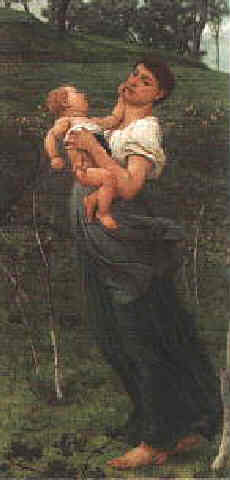|
A Capri mother
Oil on Canvas
34.6 x 17.9 in. / 88 x 45.5 cm.
The Etruscan School
Group of Italian and English landscape painters. It was formally associated in Rome only during the winter of 1883-4; the name of the group was never widely accepted and came to refer retrospectively to the landscapes that artists in this circle painted and exhibited together from the 1860s. They were united by an affection for the countryside of Italy. Under the influence of GIOVANNI COSTA they revived the tradition of landscape painting that derived from Claude Lorrain and Nicolas Poussin and that Thomas Jones, Pierre Henri Valenciennes and Jean-Baptiste-Camille Corot had explored. The aesthetic principles that determined the nature of the paintings of the Etruscan school were first discussed by Costa with GEORGE HEMING MASON and FREDERIC LEIGHTON, whom he had met in 1852 and 1853 respectively. From 1877 Costa exhibited landscapes at the Grosvenor Gallery, London, in the company of George James Howard (later 9th Earl of Carlisle; see HOWARD (ii), (4)), Matthew Ridley Corbet (1850-1902), Edith Corbet (c. 1850-1920), William Blake Richmond (see RICHMOND (ii), (2)), Edgar Barclay (1842-1913) and Walter Maclaren ( fl 1869-1903) and the Italians Gaetano Vannicola (1859-1923) and Napoleone Parisani (1854-1932). These painters, with the addition of Norberto Pazzini (1856-1937), were the original members of the Etruscan school. Their style of painting is characterized by breadth of handling and a fondness for the subdued tonalities of panoramic distances. Costa instructed his followers that the purpose of the landscape artist is to evoke and describe the emotions and affections felt for his native land; sentiment is to be regarded as the most important element in a painting; 'the study which contains the sentiment, the divine inspiration, should be done from nature,' he is recorded as saying. Then, 'from this study the picture should be painted at home, and, if necessary, supplementary studies be made elsewhere' (Agresti, p. 213). From 1888 the members of the group transferred their allegiance from the Grosvenor Gallery to the New Gallery, London, exhibiting there until 1909. Other painters who joined the Etruscan school or were influenced by Costa include Walter Crane, Thomas Armstrong and the American Eugene Benson (1839-1908).
_____
Back to Thomas Buchanan Read letter
|



